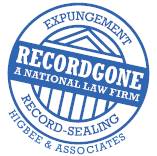What is Petty Theft?
Petty theft is a property crime defined by law in most states in the US. Having a conviction for petty theft on one’s record can make it difficult to find employment. Fortunately, most states allow for an arrest or conviction for petty theft to be expunged, because it is a low-level theft crime.
Our free online eligibility test can quickly tell you if your petty theft record is eligible to be expunged.
Expungement laws vary by state, so the best thing to do is to take our free online eligibility test to see if you can have your petty theft case expunged. If your record is in a state in which we do not offer expungement services, please call an attorney in your state. Do not take legal advice from a non-attorney or someone who is not licensed to practice law in the state where the petty theft offense occurred.
Why Get a Petty Theft or Shoplifting Record Expungement?
Studies show that more than 80 percent of employers conduct background checks. Naturally, almost all employers are concerned about an employee who may steal from them or their clients. Many employers do not realize that not all theft crimes are the same; petty theft can be for something as small as a candy bar or pack of gum. Once the record is expunged, obtaining employment should be much easier.
Having your petty theft record expunged can mean that the employer will not be able to see the arrest or court case. It also can also allow you to honestly answer “no” to any question about having had a criminal record. The benefits of expungement vary by state, but, in general, all of the expungement laws are designed to make deserving people have a better chance of reintegrating into society. Or in other words, once your record is expunged it will be easier to find jobs, housing and educational opportunities.
How to get a Petty Theft Record Expungement
The first question that most people ask when they are convicted of petty theft (or any crime) is "how do I live with the label of being a criminal?" If you have been convicted of petty theft, the chances are that you have asked how the same question about living with a petty theft charge.
The answer depends on many things, but first and foremost it depends on where the offense occurred. It is that state’s law that will dictate if and when you can get your record expunged.
In general, expungement involves filing a motion or petition with the court. The petition usually has to be served (which means delivered) to the prosecution, too. Most courts allow a person to submit written testimony and provide any supporting evidence with the motion or petition. Keep in mind, that whichever documents are filed with court must also be provided to the prosecution. The court will review the petition and determine if you are eligible and deserving. The prosecution may object if they do not believe that you are eligible or deserving to have your petty theft expunged. The court may have a hearing, where you will be required to provide oral arguments in support of your request for expungement. Hiring an attorney can greatly improve your chances of successfully expunging a petty theft or shoplifting charge.
Chances of a Successful Expungement in a Petty Theft or Shoplifting Case
Each case, state and court are different, so it is very difficult to say what an individual’s chances of success are in expunging a petty theft. Attorney Mathew Higbee says that his nationwide success rate is about 97% on petty theft expungement cases and 91% on expunging any theft case.
“Theft crimes are not the type of cases that people commit habitually, unless there is a substance abuse or some other underlying problem. As a result, courts tend to grant expungement requests, especially if the person has gone a few years without any theft crimes,” said Higbee.
Definition of Petty Theft
Petty theft is a legal term for small theft. The term dates back to common law. The use of petty is derived from the French word petit, meaning small. Petty theft is used in contrast to grand theft, which is a large theft. State law determines what constitutes petty theft. In California, Penal Code sections 484 and 488 define petty theft, which requires that the value of the item or items stolen must be less than $950. Some states define petty theft at much lower monetary amounts, such as $250. Utah defines petty theft as below $500.
What is the difference between petty theft and shoplifting?
These terms are often used interchangeably as generic terms for stealing lower valued items from a store. However, some states do have specific laws that address stealing from a store, as opposed to stealing from other places. In most states, shoplifting can be expunged and is treated the same as petty theft for purposes of expungement.
A person who steals something of significant value from a store is typically charged with grand theft, as opposed to shoplifting or petty theft. Again, state law will determine the differences among grand theft, petty theft, and shoplifting.
Find out if you qualify for a record expungement by taking our free expungement eligibility test or calling us at (877) 573-7273.
Didn't find the answer you were looking for? Check out our Free Expungement Information and Education page.
About The Author
Mathew Higbee is a recognized authority on criminal record clearing. He has worked on more than 2,000 expungement cases in 6 states. He successfully argued the published case of People v. McLernon which helped define California's expungement law.
Mathew Higbee is licensed to practice law in California, Michigan, Minnesota, Nevada, Utah and Washington.



